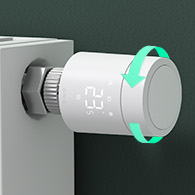- Joined
- 1 Dec 2021
- Messages
- 1,904
- Reaction score
- 290
- Country

How long should a domestic boiler last?
And by "last", i mean, how long does it remain economically viable?
I suppose there are a few key factors.
Cost of unit,
Cost of install,
Cost of maintenance/servicing,
Cost of decommissioning.
Future tech efficiency costs
Reliability
Warranty
Parts availability.
Lots of ways to figure this out, you can graph the costs over time to give you a cut off.
If you have an old, inefficient boiler, your point of return will be shorter, but then again, efficiency is controversial as the average working condensing boiler efficiency in the UK is about 82% (apparently).
Boilers are modular? You can repair or replace parts on an ongoing basis. Does this mean a boiler kept in good condition can last as long as parts are available?
In fact, is that the limit? Parts availability?
You are not normally going to recover the install, purchase and decommissioning costs of a boiler by efficiency improvements surely?
How long are parts available? My Suprima is getting on for 20 years old and parts are readily available. Not that there is much in it to go wrong, which is great, I'll take the 4% efficiency hit and you can keep your order-of-magnitude increase in complexity.
Why does the industry say that a boiler lasts only 10-15 years?
Which bit is failing so badly that they are not economically viable after that time?
And by "last", i mean, how long does it remain economically viable?
I suppose there are a few key factors.
Cost of unit,
Cost of install,
Cost of maintenance/servicing,
Cost of decommissioning.
Future tech efficiency costs
Reliability
Warranty
Parts availability.
Lots of ways to figure this out, you can graph the costs over time to give you a cut off.
If you have an old, inefficient boiler, your point of return will be shorter, but then again, efficiency is controversial as the average working condensing boiler efficiency in the UK is about 82% (apparently).
Boilers are modular? You can repair or replace parts on an ongoing basis. Does this mean a boiler kept in good condition can last as long as parts are available?
In fact, is that the limit? Parts availability?
You are not normally going to recover the install, purchase and decommissioning costs of a boiler by efficiency improvements surely?
How long are parts available? My Suprima is getting on for 20 years old and parts are readily available. Not that there is much in it to go wrong, which is great, I'll take the 4% efficiency hit and you can keep your order-of-magnitude increase in complexity.
Why does the industry say that a boiler lasts only 10-15 years?
Which bit is failing so badly that they are not economically viable after that time?

